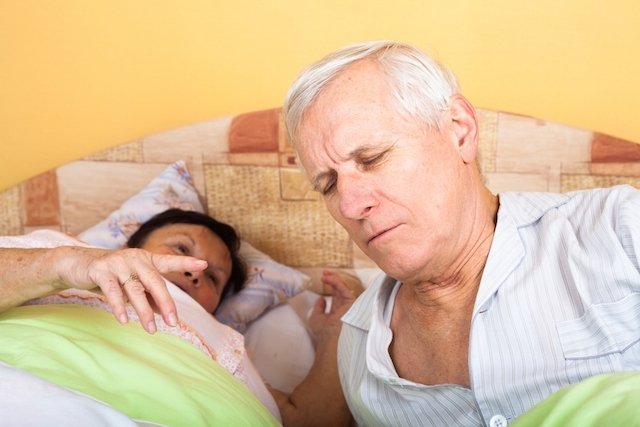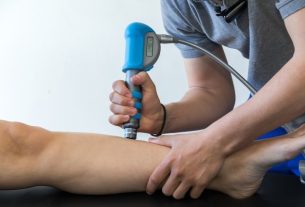Insomnia in the elderly, characterized by difficulty falling asleep or staying asleep, is common after the age of 65, but can be alleviated with simple measures, using teas for insomnia, calming juices or medications.
Insomnia causes a decrease in the ability to concentrate, attention and memory and an increase in drowsiness during the day, which favors imbalance and increases the risk of falls, accidents, injuries and fractures.
Elderly people with insomnia generally become dependent on sleeping pills, as they use them excessively and, often, without medical advice, unable to sleep without them. See some examples of these medications in: Sleeping pills.

How to treat insomnia in the elderly
Treatment for insomnia in the elderly must be recommended by a doctor specializing in sleep disorders and includes identifying the cause of insomnia and then starting the correct treatment. Once the cause has been identified, treatment can be done with:
1. Good sleep habits
To ensure a good night’s sleep, we recommend:
- Do not smoke;
- Avoid drinking coffee, black tea, Coca-Cola and alcoholic beverages. However, 1 glass of red wine with dinner is recommended;
- Give preference to light meals for dinner. See more examples in What to eat for insomnia.
Another important tip to avoid worsening insomnia is not to nap in the living room and only go to bed when you feel very sleepy and are sure that when you lie down in bed you will fall asleep.
2. Home remedies
Some good home remedies for insomnia in the elderly are passion fruit juice, chamomile tea and valerian capsules, which are natural and have sedative properties, promoting sleep, without side effects. These can be used at the same time as medications because they complement insomnia treatment. See how to prepare it in: Home remedy for insomnia.
Watch the nutritionist’s tips for overcoming insomnia:
3. Insomnia remedies
Some names of sleeping pills that the doctor may recommend are Lorax and Dormire, but he may also prescribe medications indicated for other purposes, but which also promote sleep, such as antihistamines: Periatin and Phenergan; antidepressants: Amytril and Pamelor; or sedatives: Stilnox.
What can cause insomnia in the elderly
Insomnia in the elderly is mainly due to advanced age, chronic diseases such as heart failure or diabetes, use of medication and habits such as drinking a lot of coffee or consuming excessive alcoholic beverages. Other causes may be:
- Change of routine, such as in the case of hospital admission or travel;
- Side effects of some antihypertensive medications, antidepressants and bronchodilators;
- Excessive use of sleeping pills;
- Chronic respiratory diseases such as sleep apnea or asthma.
Other possible causes may be anxiety, depression or dementia, but as there are many causes of insomnia in the elderly, it is very important to first identify the cause of insomnia so that the doctor can then recommend the appropriate treatment.

Sign up for our newsletter and stay up to date with exclusive news
that can transform your routine!
Warning: Undefined array key "title" in /home/storelat/public_html/wp-content/plugins/link-whisper-premium/templates/frontend/related-posts.php on line 12
Warning: Undefined array key "title_tag" in /home/storelat/public_html/wp-content/plugins/link-whisper-premium/templates/frontend/related-posts.php on line 13



